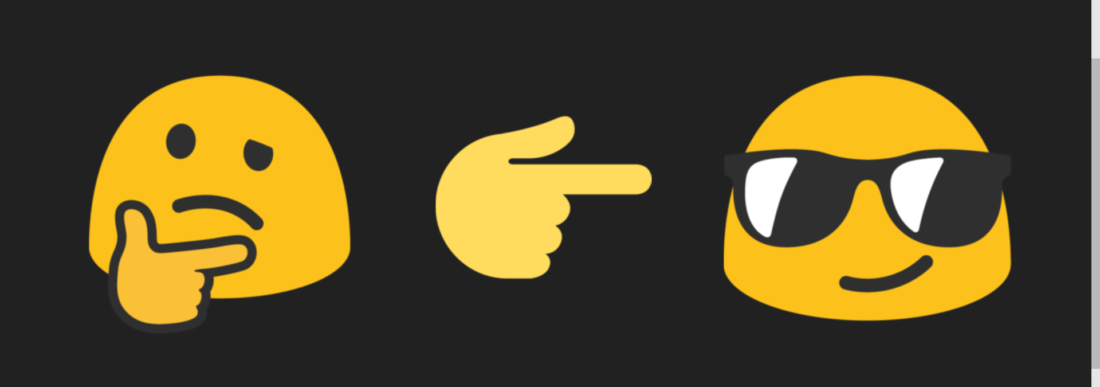Cilip, the library and information association, recently launched a consultation intended to find out what is important to library, information and knowledge management workers and how Cilip can better support the sector.
Personally I have heard, and uttered myself many times the words “Cilip should…” followed by an idea which would require a substantial pivot in direction or investment of time and money from our professional body. In this case though, it’s actively encouraged and I think it’s vital for all information workers to make their views heard especially as Cilip are explicitly asking for views from those who are not members as much as those who are.
Because some of the text fields in the survey are quite short, I found it easier to write a coherent paragraph separately in my text editor and paste it in. Below, I’ll reproduce some of these thoughts. The text of this blog post is licensed CC0, meaning I have waived all copyright and related rights to the fullest extent possible. You are absolutely free to reuse or modify my words without permission or attribution including in your own reply to Cilip’s consultation survey.
My main priority
My main priority was advocacy and lobbying, because it was the closest priority I could choose to express the urgent need for solidarity between library workers and our professional association across sectors. Public libraries especially are embattled and beset by the ongoing and often cruel effects of austerity, and as such solidarity is needed as the most basic measure possible by which we can support each other.
In my view, Cilip is still working through some of its recent history of not campaigning or supporting library activists, and I know colleagues who say they will never join or re-join Cilip because of these actions. I feel it right that Cilip accept and own this criticism because it reflects depth of feeling of current and former members, but it certainly should not stop us moving in the direction of an activist and social justice orientation and leaning in to this work. As well, I feel those library workers who advocated inaction based on Cilip’s charity status or royal charter do also need to reflect, and look forward to what we can do right now to support activism.
Equality, diversity, and inclusion
An area of work I did not see emphasized specifically in the survey is to improve equality, diversity, and inclusion (EDI) within the library and information profession. I realize it is the case that EDI is represented within other areas of Cilip’s work and is a thread throughout multiple activities. In particular, I found the ‘Libraries, information and knowledge change lives’ position paper very welcome and it has boosted my confidence in Cilip as a professional body and membership organization. However, I do think this work is both urgent and important enough to be called out specifically within the consultation survey. I recognize and applaud recent excellent work Cilip has done for EDI including the BAME Network and LGBTQ+ Network, as well as moving toward an activist and social justice stance rooted in ethical activism. To maintain momentum, I would like to see guaranteed Board of Trustee representation for the BAME network and LGBTQ+ network alongside any individual Trustee’s membership of those groups.
As an individual member of Cilip, I feel I understand the role and remit of a professional membership organisation reasonably well and despite my various “Cilip should…” takes I appreciate that the diverse views of members means that we won’t always agree. I do not think Cilip needs to be a democratic centrist organization similar to a trade union to be effective. What I would like to see is a more rapid change of pace and direction toward becoming a campaigning and activist organisation, and genuine support for members’ and others’ activism within libraries. Given the tone and content of the recent position paper, I feel we need to see changes throughout Cilip’s organization and structure such that our espoused values are congruent with our enacted values. For me this needs to be seen from the CEO, from the Board of Trustees, and from Cilip in a corporate sense, and not left only to individual members who are outspoken advocates for social justice on a personal basis.
What are the main challenges of my role and how can Cilip help?
This was an interesting question to be asked. I am a library director working in a London post-1992 university so the main challenges of my role (phrased as ‘frustrations’ in the survey) relate to higher education broadly, rather than librarianship specifically. What I picked out in the survey is one major challenge acknowledged widely throughout further and higher education is that to be more inclusive, we need to improve the diversity of our workforce. Within librarianship there are multiple, interlocking forces preventing this that maintain the status quo in ways that make it appear to be a seemingly ‘natural’ state of affairs (a very loose paraphrase of Gramsci, 1971).
Firstly by definition, the lack of diversity of the library profession means the pool we can recruit from is lacking in diversity. Allied to this, the vast majority of library workers lack lived experiences of oppression based on race and ethnicity, which creates a dominant liberal view of discrimination being rooted in individual ignorance and acts of meanness which can be solved by individual approaches rather than being structural and systemic.
Secondly, the cost of postgraduate library qualifications mitigates against drawing applications from a more diverse pool. However, simply removing requirements for qualifications from what are known as “professional posts” risks the deprofessionalization of library services and downgrading of posts. One thing Cilip can do is continue to support development of Cilip-accredited degree apprenticeship courses at undergraduate and postgraduate levels (Levels 6 and 7 in English higher education). This would have parity of esteem with existing qualifications based on level of study, credits, and academic quality assurance, as well as combining a job with degree-level study that is free to the student.
Finally, the cost and other difficultly of getting the kinds of continuing professional development (CPD) needed to be an effective reflective practitioner means that staff in our existing pool do not always fulfill their potential. Alongside institutional and more overt forms of discrimination this means that staff from communities marginalized within librarianship and higher education may not be as actively developed as much as they should, to flourish and fulfill that potential. One thing that could help is for Cilip’s professional registration routes to be viewed with greater esteem within and across sectors, as such I would to love see everything related to support for mentoring and professional registration strengthened by Cilip.
Works cited
Cilip (2019) Libraries, information and knowledge change lives. London: Cilip. Available at: https://drive.google.com/file/d/1TOq6oBuGRE7dpSxjPVEiMi528E7LuIMe/view
Gramsci, A. (1971) Selections from the prison notebooks. London: Lawrence & Wishart

